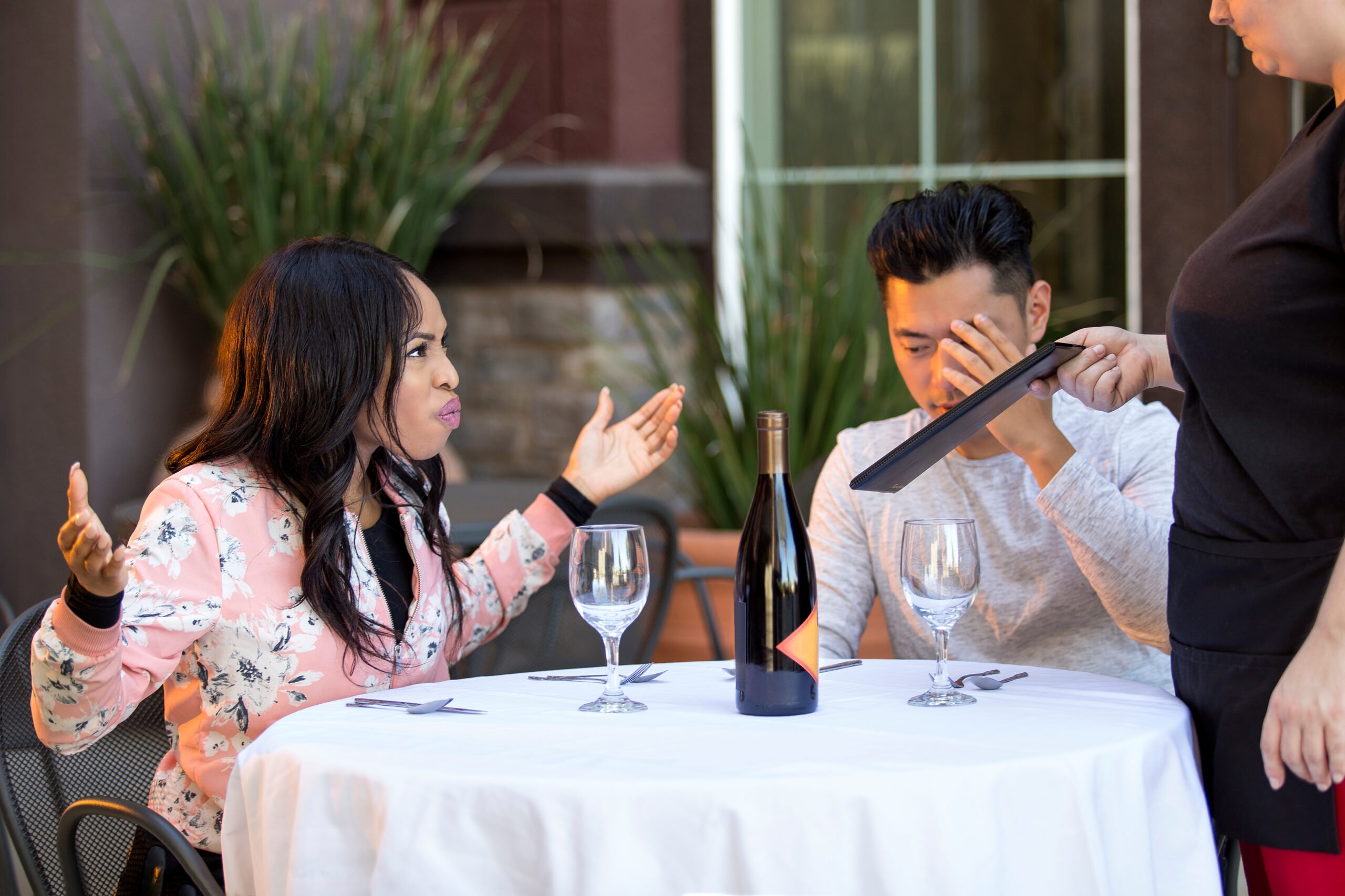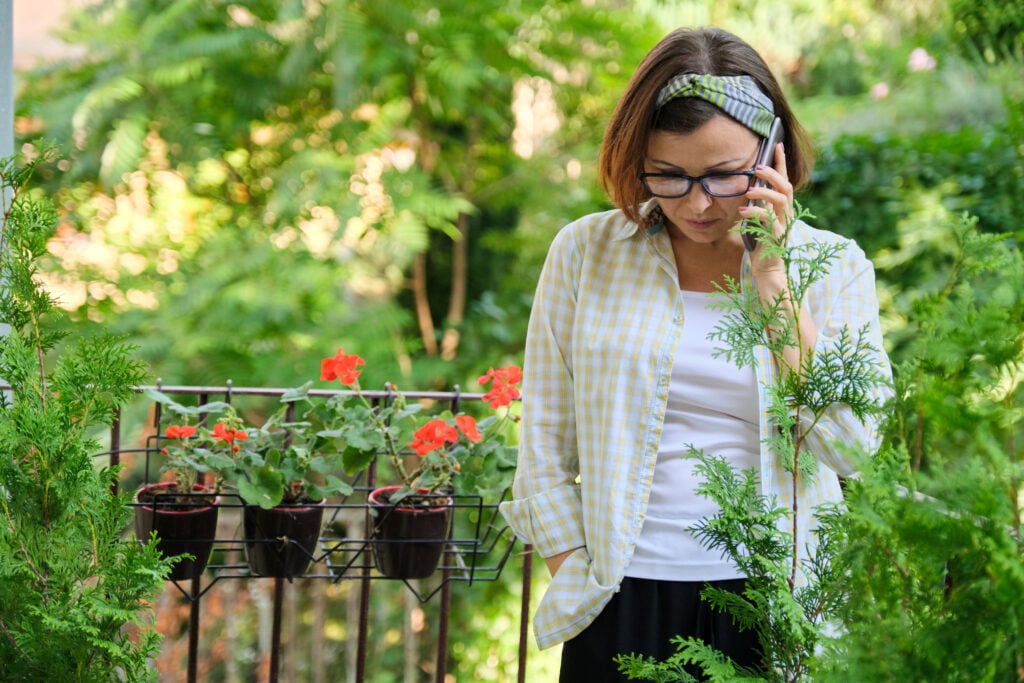Thoughtful tips to avoid sabotaging your relationship with a mature woman.

Dating an older woman can be one of the most enriching and fulfilling experiences you’ll ever have—if you treat the relationship with the care and respect it deserves. Mature women often bring emotional intelligence, self-assuredness, and depth to their connections, making them exceptional partners. But the success of that bond depends heavily on your ability to communicate thoughtfully and avoid making assumptions based on age. Small slips in language or tone can create distance, even when your intentions are good.
If you’re serious about cultivating a meaningful connection, it’s essential to be mindful of the way you speak and the implications of your words. Some comments may seem harmless at first but can come off as dismissive, patronizing, or tone-deaf when directed at a woman with more life experience. These 11 remarks are better left unsaid—not because older women are fragile, but because they deserve to be seen for their whole selves, not defined by stereotypes or shallow compliments.
1. “Wow, you don’t look your age at all.”

At first glance, this might sound like a flattering comment, but it can land awkwardly when directed at someone who’s already comfortable in her skin. By tying your admiration to her age, you unintentionally reinforce the idea that aging is something to be hidden or minimized. It’s as if her value rises simply because she defies an expected visual standard—and that can feel dismissive or even condescending, especially to a woman who embraces her maturity.
Instead of using age as the baseline for your compliment, focus on what genuinely draws you to her. Tell her she radiates confidence, that you love the way her eyes light up when she talks about her passions, or that she carries herself with elegance. Compliments that reflect her essence—not just her appearance—are more impactful and affirming, as shared by April Boddle at Huffpost. Avoid framing her worth in the context of youth, and you’ll deepen your emotional connection instead of undermining it.
2. “Are you worried about keeping up with me?”

This question subtly assumes she’s physically or mentally behind you simply because she’s older, which is both patronizing and presumptive. Many older women are deeply engaged in active lives—traveling, hiking, starting businesses, or pursuing creative passions. Asking this suggests you expect her to be slower or less vibrant, which is not only insulting but also shows a lack of curiosity about who she really is.
If you’re wondering whether your lifestyles align, there are better ways to explore that without making assumptions. Share your interests and invite her to do the same. You might discover that she has more energy and ambition than you anticipated. By focusing on shared experiences and what you can enjoy together, you’ll build mutual respect. Let her lead in showing what she’s capable of rather than framing her age as a limitation, editors at BetterHelp reported.
3. “How do you feel about the age gap between us?”

Bringing up the age difference puts unnecessary pressure on a topic that may already be sensitive. If she’s chosen to date you, it means she’s already considered the age dynamic and is comfortable moving forward. When you frame the relationship around the age gap, it can feel like you’re still uncertain or waiting for her to justify her choice—which might make her question the foundation of the relationship.
Instead, direct your energy toward exploring compatibility, shared values, and emotional connection. A strong relationship thrives when two people are emotionally aligned, not numerically matched. Let the chemistry and mutual understanding speak for themselves, writers at wikiHow mentioned. When you stop trying to make sense of the numbers and instead appreciate the person in front of you, you’ll create space for something deeper and more authentic.
4. “Aren’t you a little old for that?”

This kind of remark enforces age-related stereotypes and implies that she should confine herself to some arbitrary age-appropriate box. Whether she’s taking dance lessons, planning a solo trip, or posting selfies on Instagram, questioning her choices based on age is dismissive and controlling. Everyone deserves the freedom to evolve, try new things, and enjoy life on their own terms.
Instead of projecting your own expectations onto her, express curiosity and admiration. Ask her what draws her to the activity and how it enriches her life. Mature women often find great fulfillment in doing things that bring joy and challenge convention. When you honor her independence and zest for life, you’re not just respecting her—you’re inviting more joy and spontaneity into your shared experience.
5. “You must have amazing life stories to tell.”

While this may seem like a compliment, it can unintentionally cast her in a role she didn’t ask for—like a sage elder rather than an equal partner. Framing her as a source of nostalgic tales can make her feel like you see her more as a life coach than a romantic interest. It subtly highlights a generational divide, even if you didn’t mean to.
It’s much better to stay present and engaged with who she is now. Instead of assuming she’s got a vault of stories to tell, ask her what excites her lately or what passions she’s pursuing. Let the past emerge naturally through conversation rather than fishing for wisdom. When you meet her where she is, as a full and dynamic person in the here and now, your relationship stands on firmer ground.
6. “Are you planning to retire soon?”

Bringing up retirement can feel like a veiled suggestion that she’s approaching the end of her productive life. Not only is that tone-deaf—it’s often inaccurate. Many older women are pursuing second careers, launching businesses, or passionately engaging in causes they care about. Assuming she’s ready to wind down can feel insulting and completely out of step with her reality.
If you’re genuinely curious about her ambitions, ask her about what’s inspiring her lately or what goals she’s chasing. Focus on her aspirations rather than projecting a timeline onto her life. You’ll learn much more about her by tuning into her present energy than by making assumptions about where she “should” be in the lifecycle. Respecting her momentum creates a bond rooted in equality and possibility.
7. “Do your kids mind that you’re dating?”

This question treads into very personal territory and makes assumptions about her family dynamics. It suggests that her romantic life is subject to the approval of her children, which undermines her autonomy. Many mature women have adult children and navigate their relationships with confidence and boundaries in place—they don’t need their kids’ blessing to choose a partner.
Instead, let her open up about her family on her own terms. If her kids are an important part of her life, that will become clear through authentic conversation. Respect her privacy and the complexity of her relationships without prying. Demonstrating emotional maturity means letting her share what she wants, when she wants—building trust rather than trying to evaluate her life circumstances from the outside.
8. “You must hate being called a cougar.”

Even if you’re trying to be playful, this stereotype reduces her to a caricature and erases the uniqueness of your connection. The term “cougar” is often loaded with implications of predatory behavior, superficial motives, or sexual clichés—all of which distract from genuine respect and intimacy. It’s not funny. It’s not flattering. It’s demeaning.
Your relationship deserves better than a label. If you truly admire her, reflect that through words and actions that recognize her individuality. Compliment her intelligence, her kindness, or her ability to connect deeply. Rejecting reductive language is a powerful way to show that you’re capable of seeing beyond surface-level narratives—and that you’re here for the real person, not a stereotype.
9. “I bet you’ve dated a lot of younger guys.”

This is another comment that unfairly places her in a box, often laced with judgment or curiosity masked as banter. It implies she has a “type” and invites speculation about her past that isn’t relevant or helpful. It also distracts from the present connection you’re trying to build, injecting insecurity or defensiveness where there should be trust.
Focus instead on the relationship you’re creating together. Let the conversation center around shared experiences, mutual interests, and the excitement of getting to know one another. If her past matters to her, she’ll share it in time. When you stop analyzing her choices and start appreciating who she is now, you make room for genuine closeness.
10. “Does it bother you that you’re older than me?”

Even if this is an honest question, it puts her on the defensive. It sounds like you’re looking for reassurance or expecting her to justify the relationship. Mature women aren’t looking to be coddled—they want to be respected. Asking this kind of question shifts focus from the relationship itself to a number that likely matters more to you than it does to her.
Instead of fixating on the age difference, embrace what makes your dynamic work. Every relationship has its own rhythm and quirks, and age is just one small part of the equation. When you approach her with confidence, curiosity, and respect, you remove the awkwardness and allow the relationship to thrive organically. Trust that if she’s with you, she’s chosen you fully—and act like it.
11. “Do you feel out of place with my younger friends?”

This comment assumes she lacks the confidence or social ability to fit in, which is not only patronizing but also false for many older women. Mature women often bring grace, humor, and insight to any setting, and they’re usually very comfortable navigating diverse social groups. Suggesting otherwise creates unnecessary tension and can make her feel othered.
If you value her presence in your life, include her naturally. Don’t make her feel like a guest in your world—instead, invite her to be part of it. Let your friends get to know her for who she is, not how old she is. When you treat her as an equal and resist projecting awkwardness where none exists, you lay the foundation for a stronger and more integrated connection.
